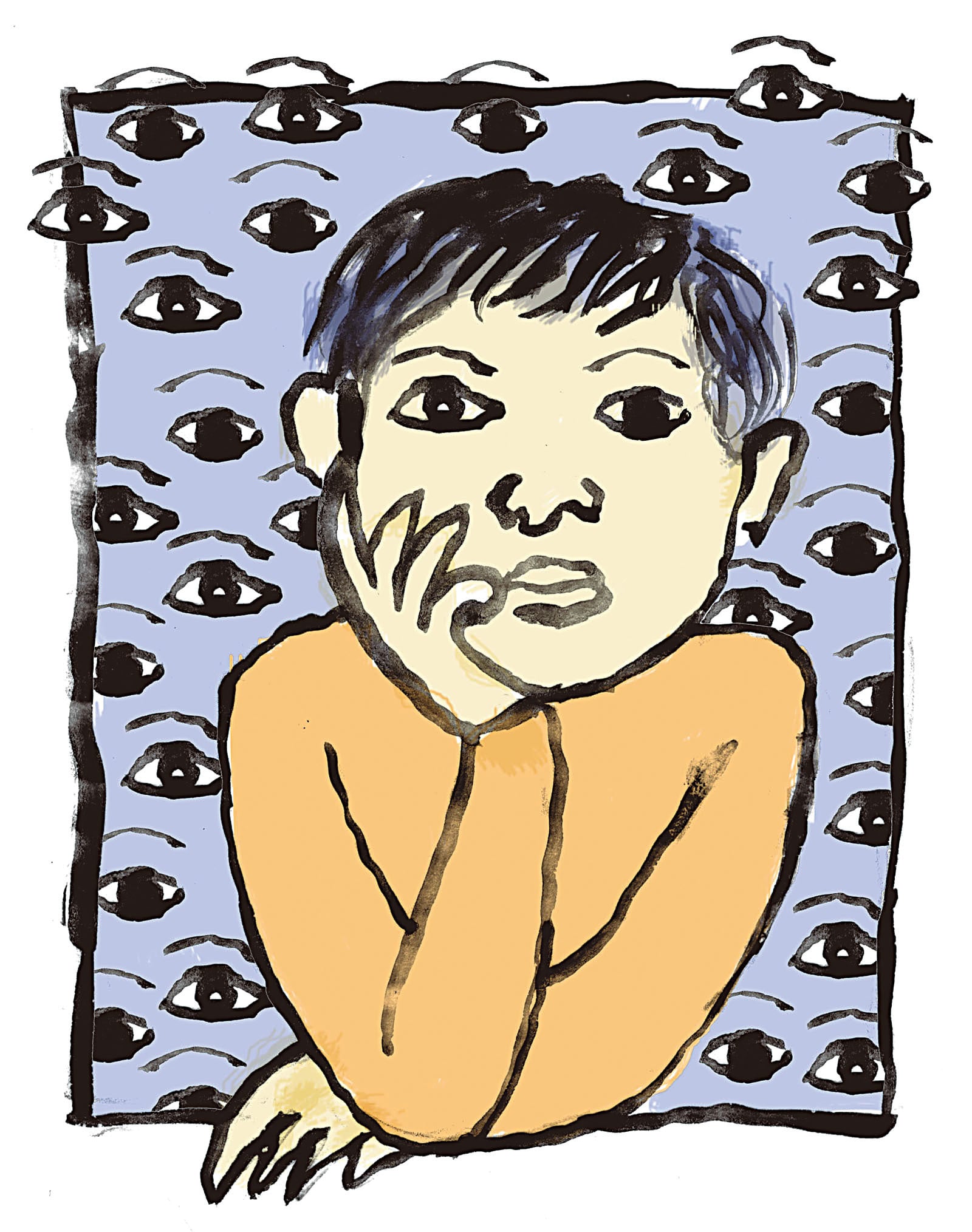MEET 13-year-old Oliver Dalrymple, aka Boo, so nicknamed due to his ghost-like pale skin and near white hair. There is nothing average about Boo: he’s a shy child, has no friends, and is a science geek — his locker is adorned with pictures of the scientists Richard Dawkins and Jane Goodall. He memorises the periodic table for fun. On top of this, he suffers a heart condition. He wants to have friends and even attempts to practice conversations in front of the mirror in a bid to create relationships. Exhibit A: “To my mirror I said, ‘Hello, Cynthia Orwell. How were cheerleading tryouts today? Did you perform your splits to your liking?’ When I said the same thing to the real Cynthia Orwell, she scrunched her nose as if I gave off a foul smell. She said, ‘Oh Boo, don’t be schizo. Get lost, okay?’”
Boo is the narrator of his story. It begins: “As you know, I died in front of my locker at Hellen Keller Junior High on Sept. 8, 1979”. He’s addressing his parents and letting them know of the afterlife, how he’s living it in Town, not heaven — there’s nothing really religious about the afterlife in Smith’s novel. If anything, Town is a decrepit suburbia. It is here in Town that our young Boo awakens to discover he is dead — he assumes — from his heart condition but we soon learn that he died in a school shooting. Johnny, who was in Boo’s class, died in the shooting too and they soon become friends. Also in Town is Gunboy, a name he is given because the boys believe him to be the school shooter who allegedly killed himself after the incident. Johnny vows to find Gunboy to avenge his — and Boo’s — killing.
Town is now home for Boo and Johnny, and together they do things best buds do: engage in merriment, revenge and search for a portal they believe will take them back to earth. This is the afterlife after all, there has to be something unreal to it. However, do not mistake this for science fiction; it is serious, it is dark and it is ultimately a lovely story that will leave a long, lasting impression.
It is, however, not The Lovely Bones if the idea of “child speaks from the afterlife” is giving you a sense of déjà vu. Dead child narrators are the only things these two books have in common. That and the parents’ grief a child’s passing leaves, which Boo imagines when he writes: “I picture you, Father and Mother, in your living room. You are building a shelf on the wall. It will be the stage on which my urn will stand. You do not want to let me go. In any case, do we ever really let anyone go? Even those who are no longer with us are still with us.” Smith is a gifted, funny story teller who weaves a tale that hooks you right in from the get-go.
Through Boo we learn about Town: as aforementioned, there is nothing heavenly about it. Its inhabitants are all 13-year-olds who live in a sort of walled community. (Other ages live elsewhere.) Their leader — though no references are made to the word God — is Zig, who I imagined to be an aged hippie; in real life, he would have been at Woodstock, still smoke pot and be conflicted about free love. Residents in Town must live there for 50 years until they pass into another afterlife if approved by Zig. If not, we don’t know what happens after you die again. We don’t see Zig. He communicates with the kids through cockroaches. He is not worshipped per se, but he’s also not criticised, which makes Boo’s relationship with Zig the most interesting. Boo is after all a scientist, and can’t accept things just for the sake of it; he wants proof.
There are rules and regulations about living in Town. Residents are “ruled” by volunteers called “do-gooders”; folks don’t eat meat and punishment ranges from being grounded to the more serious incarceration. “Sad cons” get sent to a mental health institution, for example. Town and the afterlife, with its eccentric characters, become believable as the mystery surrounding Boo’s school shooting unfolds.
There are plenty of young adult issues that are discussed that make for a riveting read — social isolation among teens, bullying, school shooting, mental health, suicide among teens. And all these things are relevant in today’s time when one thinks teens have their heads buried in their laptops, phones, obsessed with social media and are thus oblivious to the aforementioned issues which only occurred in the late ’70s when the book is set. Nothing could be further from the truth. How often have we heard of horrendous outcomes caused by cyber bullying? About 30 per cent of American youth are bullies or target of bullying, says the National Youth Violence Prevention Resource Centre and the figures for suicide among the youth in the US are equally depressing. Smith is tackling some very real issues in the afterlife and he’s doing so deftly, making Boo a good read for teens and adults alike.
I’d love to see Boo put on high school reading lists because one could discuss a wide range of issues the story offers: gun violence, democracy, forgiveness, bullying, how to get along, tolerance and above all, friendship. That Smith has managed to convey all these elements without being corny or having readers reach for the tissues is a testament to his storytelling skills.
Boo
(NOVEL)
By Neil Smith
William Heinemann
ISBN 978-0434023493
320pp.
















































Dear visitor, the comments section is undergoing an overhaul and will return soon.